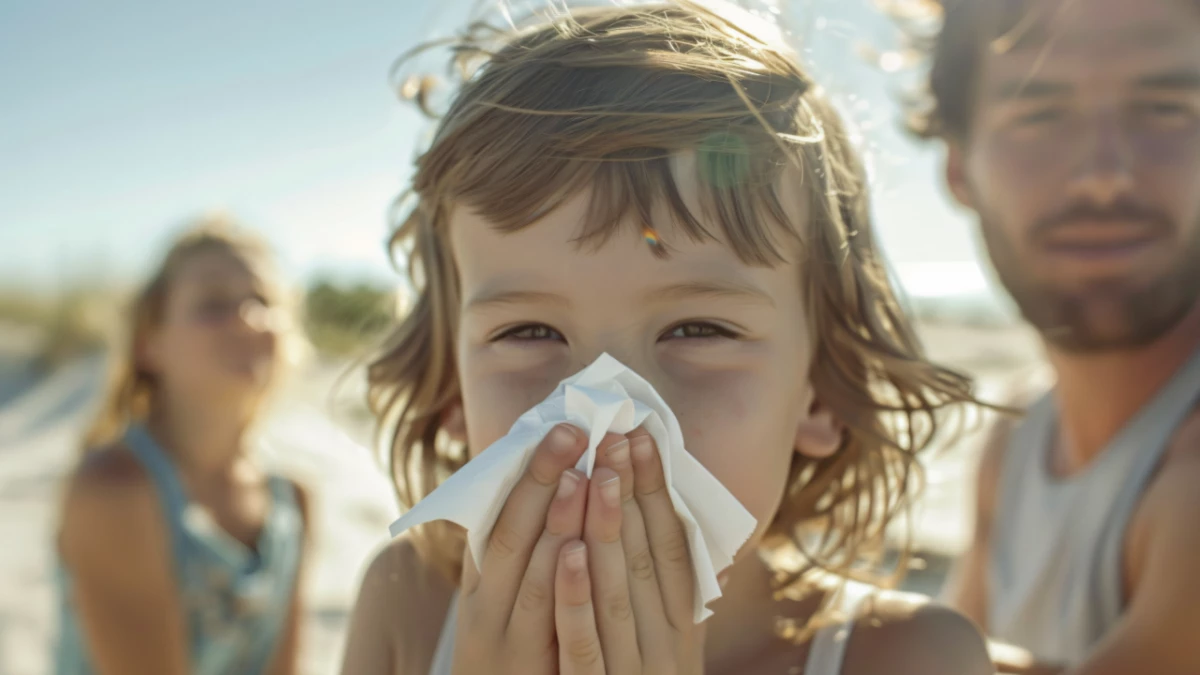When the temperatures rise, we put away our heavy clothes, and the calendar on the wall increasingly reminds us that it’s time for vacations and travel. The last thing we plan for are summer viruses. But unfortunately, they don’t take a break and arrive almost at the same time every year, with similar symptoms. They take advantage of the heat, increased movement of people, more frequent contact, and the hygiene compromises we sometimes make while traveling or on holiday.
What Are Summer Viruses?
Summer viruses are most commonly responsible for:
Gastrointestinal infections – diarrhea, nausea, vomiting, abdominal pain, fever
Upper respiratory tract infections – sore throat, cough, nasal congestion
Skin rashes, sometimes accompanied by fever
Viral conjunctivitis – red, watery, itchy eyes; often contagious and very uncomfortable
The main causes are enteroviruses, rotaviruses, noroviruses, adenoviruses, and less commonly – herpes viruses or parvoviruses.
How Are They Transmitted?
They are most often spread through:
- Contaminated hands and surfaces
- Unwashed or improperly stored food
- Contaminated water
Contact with infected individuals or shared objects (handles, toys, sunbeds, towels)
Who Is Most Vulnerable?
The most commonly affected groups include:
- Young children, especially under 5 years of age
- People with chronic illnesses (e.g. diabetes, cardiovascular disease, autoimmune conditions)
- Older adults
- Pregnant women
- Travelers abroad who may encounter unfamiliar viral strains
What Are the Typical Symptoms?
The most common symptoms of summer viruses include:
- Sudden onset of fever
- Nausea, vomiting, diarrhea
- Fatigue, loss of appetite
- Abdominal or muscle pain
- Sore throat, runny nose, or red eyes
- Blisters or rashes on the skin
Symptoms usually last between 2 and 5 days, but some viruses (like enteroviruses) can linger longer or present more severely.
When to Seek Medical Attention?
Seek medical advice if you experience:
- Repeated vomiting or diarrhea lasting more than 24 hours
- Very high fever (over 39°C / 102°F), especially in children
- Signs of dehydration – dry mouth, no urine output, lethargy, drowsiness
- Rashes that spread rapidly or are accompanied by fever
- Severe abdominal pain, stiff neck, or confusion
Important: Home treatment does not replace a medical examination—especially for children under 3 years of age.
How to Prevent Summer Viruses
1. Maintain good personal hygiene
- Wash hands frequently with soap—especially before eating and after using the toilet
- Use hand sanitizer when soap and water are not available
2. Store food safely
- Don’t leave food at room temperature for more than 2 hours
- Avoid raw fish, shellfish, and unpasteurized products while traveling
- Always check expiry dates, especially on dairy products and processed meats
3. Drink clean water
- Drink only bottled or well-filtered water
- Don’t allow children to drink from pools, lakes, or unknown public taps
4. Be cautious in public places
- Use your own towel at the beach or hotel
- Don’t share bottles, utensils, cosmetics, or sunglasses
5. Monitor children carefully
- Limit their contact with sick peers
- Choose eateries with good hygiene practices
- Carry a travel kit with a probiotic, oral rehydration solution, and thermometer
What Can You Do at Home in Mild Cases?
- Rest – your body needs time to recover
- Increase fluid intake – water, herbal tea, oral rehydration solution
- Eat light foods – toast, rice, potatoes, banana
- Avoid milk, fatty, and sugary foods
- Take a probiotic – especially in cases of diarrhea
- If temperature rises above 38.5°C (101.3°F), paracetamol or ibuprofen may help (as advised by a doctor)
A Final Reminder:
Not every stomach issue or rash is “just a little virus.” Sometimes it may be food poisoning, a bacterial infection, or an allergic reaction. If you're in doubt, don’t delay consulting a doctor.
Why Is Timely Action Important?
Timely medical consultation can:
- Prevent complications (such as severe dehydration)
- Help with faster recovery
- Reduce the risk of spreading the virus to others
The VITA Hospital Team Is Here for You
Our pediatricians, gastroenterologists, and internal medicine specialists are available for consultations and support throughout the summer. Your health and peace of mind are important to us—whether you're at home or traveling.
Book your appointment in advance by calling:
02 45 22 000, 02 960 49 50 Or online at vita.bg
Wishing you a healthy and joyful summer!


 On this page, you can change your choices at any time after you have read and understood our
On this page, you can change your choices at any time after you have read and understood our